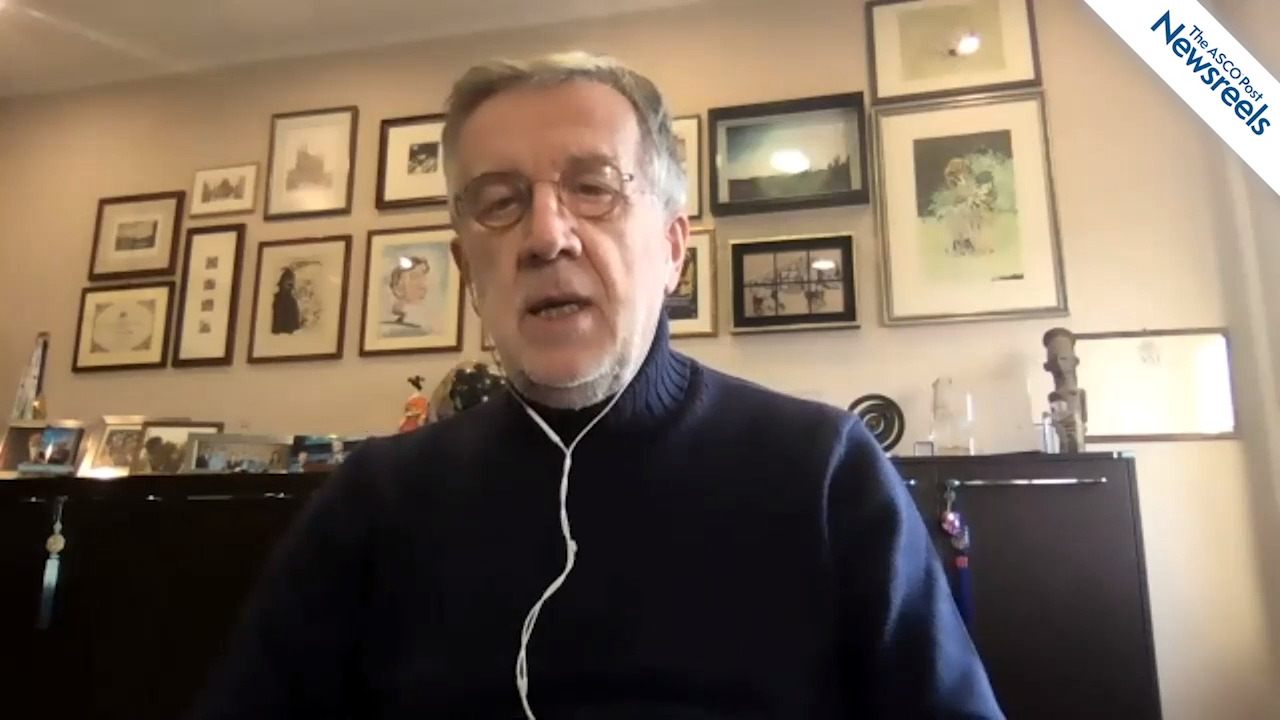Justin F. Gainor, MD, on NSCLC: Study Results on Nivolumab vs Ipilimumab, Bemcentinib Plus Pembrolizumab
IASLC 2020 World Conference on Lung Cancer in Singapore
Justin F. Gainor, MD, of Massachusetts General Hospital, discusses two key phase II studies on non–small cell lung cancer: nivolumab vs nivolumab plus ipilimumab in EGFR-mutant disease and the oral selective AXL inhibitor bemcentinib with pembrolizumab in advanced disease (Abstracts OA01.06 and OA01.07).
The ASCO Post Staff
Dean Fennell, FRCP, PhD, of the University of Leicester, discusses phase III results from the CONFIRM trial, which sought a standard immunotherapy treatment to improve overall survival for patients with mesothelioma who have relapsed after taking pemetrexed and cisplatin. Globally, the incidence of mesothelioma is on the rise; in the United Kingdom alone, it has gone up nearly 500% since the 1970s (Abstract PS01.11).
The ASCO Post Staff
Giorgio V. Scagliotti, MD, PhD, of the University of Torino, talks about why he believes that many more patients with lung cancer can be cured within the next 4 years, given decreases in mortality rates, widespread use of targeted treatments and immunotherapies, and earlier diagnoses as a result of systematic screening with low-dose CT (Abstract PL05.08).
The ASCO Post Staff
Fred R. Hirsch, MD, PhD, of Mount Sinai Medical Center, invites his colleagues to enroll their patients in a large prospective study, for which he serves as Principal Investigator. The study is searching for solutions for treating patients with lung cancer who also have the coronavirus, because so many experience an aggressive course of infection.
The ASCO Post Staff
Silvia Novello, MD, PhD, of the University of Turin, discusses phase III results from the ITACA trial, which explored the notion of improving survival by customizing treatment and reducing toxicities for patients with completely resected stage II to IIIA non–small cell lung cancer (Abstract PS01.04).
The ASCO Post Staff
Martin Reck, MD, PhD, of the LungenClinic, discusses the results from KEYNOTE-799, which explored a new strategy to increase the intensity of treatment in patients with unresectable, locally advanced, stage III non–small cell lung cancer (Abstract OA02.03).





